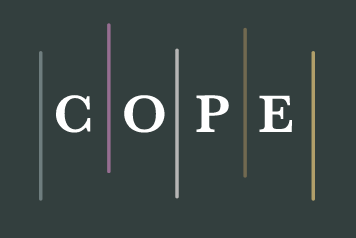Evaluation of the Impact of Islamic Education Courses on the Responsibility of Students of Shiraz University of Medical Sciences
DOI:
https://doi.org/10.58355/lectures.v3i4.92Keywords:
Islamic education courses, Responsibility, Shiraz University of Medical SciencesAbstract
One of the courses that can be used in universities to familiarize students with responsibility is Islamic education courses. These courses are culture-building and human-building courses that can play an essential role in the education of young people and the cultural construction of society by promoting Islamic culture. For this reason, the curriculum planners of Islamic education courses should focus their efforts on designing curricula that meet the needs of students and especially teach responsibility skills from a religious-religious aspect. The present research was carried out using a descriptive survey method on 248 people who had taken Islamic education courses. In this research, a stratified random sampling method was used. The data collection tool was a researcher-made questionnaire in the form of several questionnaires in the three dimensions of insight, attitude, and behavior, and answers were on a five-point Likert scale. The content and structure validity of the questionnaire was confirmed by experts and its reliability coefficient was estimated using Cronbach's alpha coefficient of 0.86. Data analysis was done at the inferential level (one-sample t-test, independent t-test, analysis of variance) using SPSS software. The content analysis of Islamic education courses in line with the impact of these courses on the insight, attitude, and behavior of students towards responsibility, shows that the average score measured is 19.04 out of 40, which indicates an impact of about 50%. The results of the present research show that the main task of Islamic education groups is to teach responsibility and skills to students, which requires a fundamental review and the development of a comprehensive document on the evolution of Islamic education courses
Downloads
References
Amini M, Rahimi H, Salehi M, Moosavi S. Assessment of Responsibility of Students in Kashan University. Culture in The Islamic University,2013.
Boschen, J., Personal and Social Responsibility, Altruism, and Social Trust; the Study of Shiraz Adolescents. Applied Sociology., https://www.whatihavelearnedteaching.com
Castka, P., & Balzarova, M. A. (2008). Adoption of social responsibility through the expansion of existing management systems. Industrial Management and Data Systems, 2008
Chickering, A., Maximizing civic learning and social responsibility, New England Resource Center for Higher Education,2001
Karimi, S., Sharif, M., Challenges of higher education in developing curriculum content with a learning community approach, New Educational Approaches of the 9th Spring and Summer Year, 2013.
Kazempour A., Babapour Vajari M., The effect of peace education on the responsibility of students, A New Approach in Educational Management, 2017.
Mc-Cluskey-Titus, P., A Study of the Relationship between Student Involvement in the Collegiate Experience and Learning Outcomes.Doctoral Dissertation. University of Florida State, Department of Educational Leadership,1996.
http://proquest.Umi.com.[27Jan 2011]
National Curriculum Document, 2012
Pudine, M.; Hossein Qalizadeh; R.; Mehram, B., School's social responsibility; (Case study: two secondary girls' schools in Mashhad), Magazine: New Educational Approaches, 2017.
Qodampour, R. Keshti Arai, N., Ismaili, R., Identification of factors affecting the social responsibility of students of the higher education system, Qualitative Research Quarterly in Curriculum, , 2016.
Siri, S., Siri N., Evaluation of students' responsibility training programs, Second International Conference on Humanities, Psychology and Social Sciences, Turkey, Karin Summit Institute, https://www.civilica.com/Paper-HPSCONF02-HPSCONF02_023.html,2015
Sobhaninejad, M., Social Responsibility in the Current Curriculum of the Elementary School in Iran and a Plan for the Future, Ph.D. Dissertation, Tarbiat Modares University,2000.
Soroush M. Personal and Social Responsibility, Altruism, and Social Trust; the Study of Shiraz Adolescents. Applied Sociology. 2021;32(3): 162-311
Downloads
Published
How to Cite
Issue
Section
License
Copyright (c) 2024 Maryam Shamsaei

This work is licensed under a Creative Commons Attribution 4.0 International License.





















